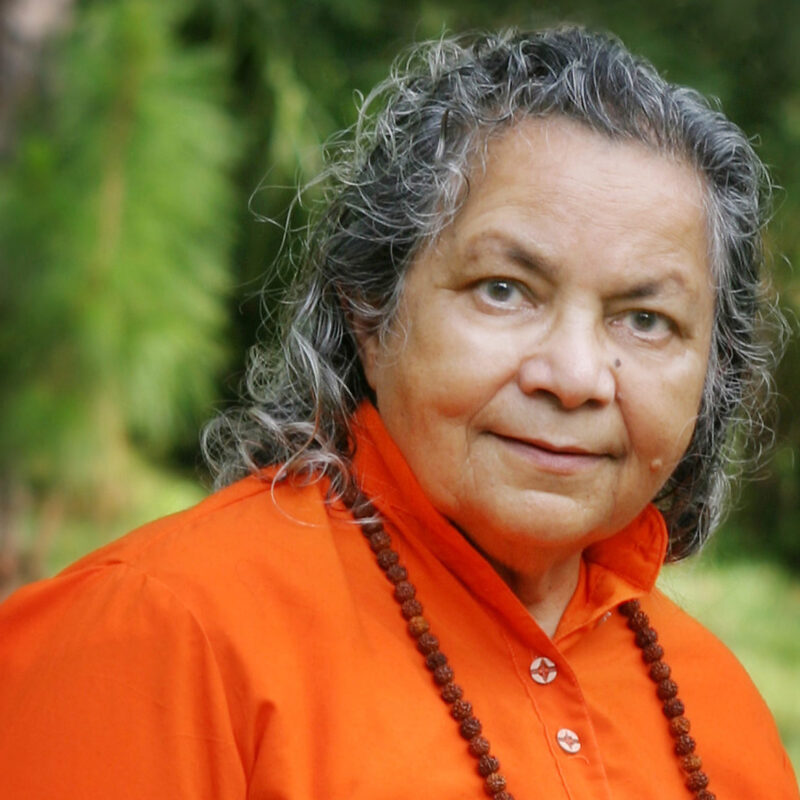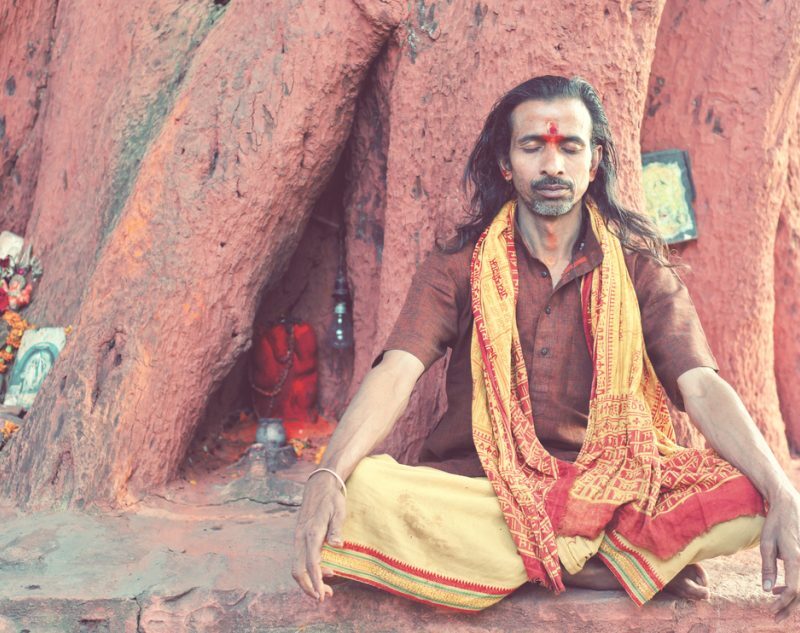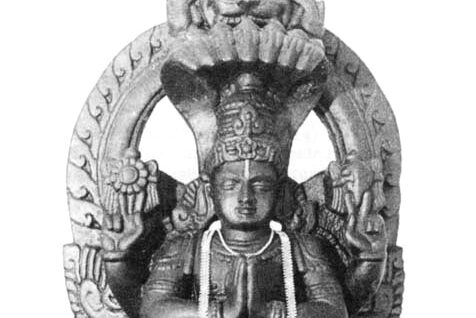
Hinduism and Sanatana Dharma: One and the Same
I will take Dr. Chopra at his word where he seeks to find common ground in our virtual debate as to the origins of yoga. Not willing to identify himself a Hindu, Chopra is content to accept the term, Sanatana Dharma, as the source of yoga and the Vedantic wisdom he propagates. “Yoga belongs to the whole world [and] represents a great gift from Hinduism…,” he writes.
This is indeed a momentous step in our exchange, as Chopra now agrees that all the eternal wisdom–including yoga!–that he cherishes, packages and distributes may have come out of the “consciousness” of Hindu saints and masters of yesterday and today.
Chopra is hardly the first to find it hard to openly identify himself a Hindu–perhaps cannot at the cost of compromising a solipsistic empire–just as Eckhart Tolle eschews the term “Hindu” while he admittedly parlays the copious works of the towering contemporary Advaita Vedanta Hindu master, Sri Ramana Maharshi. But readers here may know well that the term “Hindu” is simply the 12th century Persian abstraction referring to the people they found espousing Sanatana Dharma–the eternal way of life lived since time immemorial by the Indic civilization extant on the banks of the Indus (therefore Hindu) river. And over the ensuing years, the diverse followers of Sanatana Dharma that believed, as their progenitors always had, in the scriptural sanctity of the Vedas, in one all-pervasive Supreme Being which manifests and is worshiped in infinite forms or no form, the laws of karma, dharma, reincarnation and the ultimate goal of liberation, moksha, accepted the moniker of Hinduism.
Today, Sanatana Dharma and Hinduism are synonymous, and Chopra and I both agree that yoga is both part of and beyond this tradition. Indeed, we also agree that dharma is the means to the goal of self-realization, a transcendent state where ego, names, religion and identity are all superfluous. But therein lies the greatest point of contention between myself and Chopra.
For Chopra incomprehensibly condemns Hinduism as “tribal” and “one-eyed about being the only way to God,” while I celebrate Hinduism as the original paragon of pluralism whose Vedas recognized eons ago that “Ekam Sat Viprah Bahudha Vadanti,” or Truth is One, the wise call it by many names.
I am left stunned that Chopra would compare Hinduism to “dogmatic” or “proprietary.” Take not my words to define Hindu pluralism, but accept, the words of Swami Vivekananda’s translation of a Vedic hymn that he delivered at the first World Parliament of Religions in 1893 as a self-described Hindu monk, “As the different streams having their sources in different places all reach the sea, so also paths which men take through different tendencies, various though they appear, crooked or straight, all lead to Thee.”
Chopra conflates Hinduism with “orthodox trappings” when I see a tradition of infinite possibilities, indeed yogas, suited to the inclinations of the seeker: bhakti yoga, or devotion, for those passionate in their love for God; gyana yoga, or the path of knowledge for the contemplative and karma yoga for the active and industrious.
Chopra and I share an affinity to Sanatana Dharma, or Hinduism, but our narratives clearly diverge. An immigrant from India, he was not born and raised in the United States as was I. He never faced the innocently cruel queries of classmates that I faced and my children still answer today. “Do you speak Hindu too?”; “I saw on Indiana Jones and the Temple of Doom that you Hindus eat monkey brains”; “You don’t pray, you’re not Christian”; “My father told me you’re going to hell because you believe in millions of gods.”
My work now, at the Hindu American Foundation for example, is simply to answer such questions on a national stage and provide the perspectives of those who claim Hinduism as their own. Chopra can talk of faith in the intellectual gobbledygook of New Age platitudes, but I would caution that such manifest evasion endangers credibility when readers seek wisdom from a guru who is authentic, sincere and engaged in their daily reality.
Our argument should not be defined over parsing of the terms “Sanatana Dharma” and “Hindu”, or treating the latter as some sort of dreaded “H-word,” but recognizing, perpetuating and sharing the sublime contributions–like yoga–of our common progenitors. There are no Sanatana Dharmists or Vedantins in today’s world, but only a billion people around the globe and 2 million in the U.S. who call themselves Hindu. So the movement to claim yoga’s Hindus roots does not merely speak in a whisper — it is a silent majority finally beginning to find its voice. And in doing so, if Hinduism is better understood and appreciated along the way, children facing those questions I faced, may just answer a bit more clearly and, yes, proudly, adding another important layer to America’s pluralism.








































